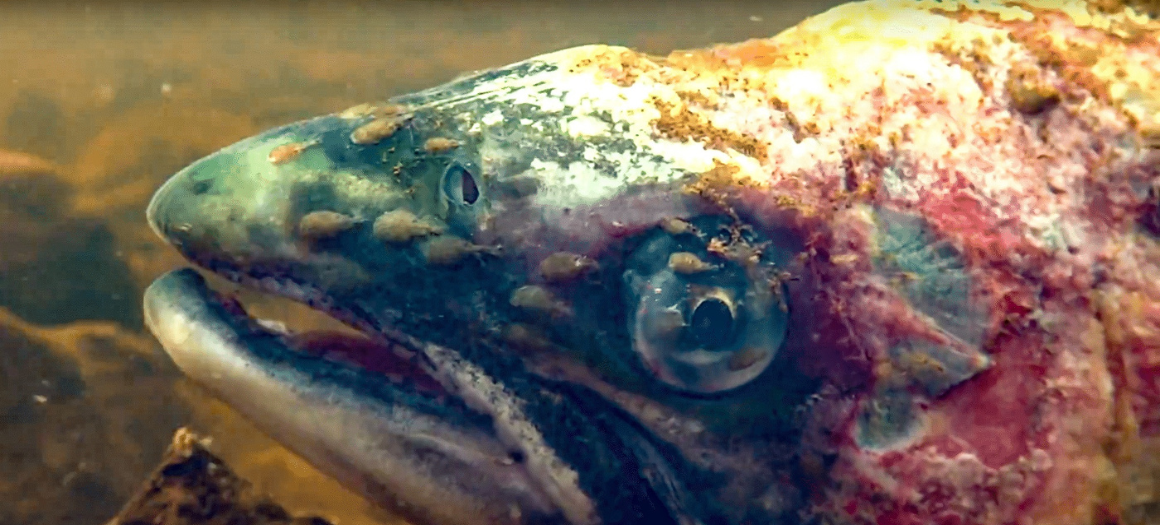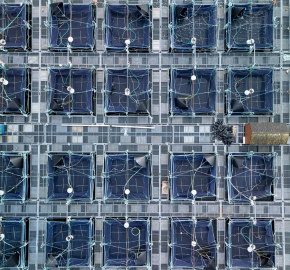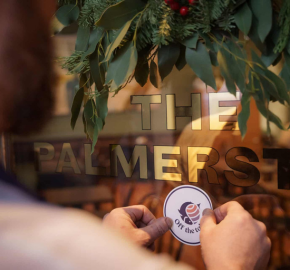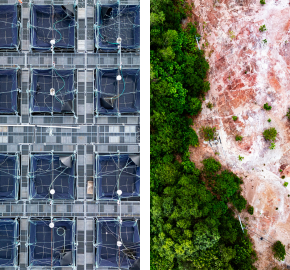Why WildFish campaigns to end open-net salmon farming

Our focus on ending salmon farming in Scotland is sometimes the subject of question – what is the link between farmed salmon, and wild salmon conservation?
WildFish is a conservation charity – our mission is to reverse the decline of wild fish populations and their habitats. Our goal is fresh and coastal waters that are clean, healthy and full of life.
Our work across the UK focuses on the pressures facing both wild fish and the ecosystems they depend upon – such as sewage and agricultural pollution, abstraction and barriers.
In Scotland, one of the major threats facing wild fish populations – and in particular the iconic wild Atlantic salmon and sea trout – is the rapid expansion of open-net salmon farming in the west Highlands and Islands including the Northern Isles.
The impact of salmon farming on wild fish
The body of evidence that supports the fact that open-net salmon farming harms wild Atlantic salmon and sea trout populations is extensive and historic. Negative impacts arise from the proliferation and spread of sea lice parasites and disease from farmed to wild salmon and the impact of escaped farmed salmon on genetic fitness, as well as impacts on the surrounding aquatic environment through the use of chemicals toxic to marine life.
Read more about the impacts of salmon farming on wild fish and the environment here.
WildFish’s position on salmon farming in Scotland
Following twenty years of unsuccessful calls to reform the industry, in 2021, WildFish concluded that, to protect wild fish and the environment in Scotland, the open-net salmon farming industry must be closed.
This position, which forms the basis of our work in Scotland, makes WildFish the target of attacks from industry, but to be clear and to reiterate – the work we do, which is embodied in our charitable status, is based in science and is driven by our mission of environmental and fish protection. Advocating for environmental and social change is firmly within the remit of charities, and so it should be.
WildFish is a small charity, and on the issue of salmon farming our opposition is formidable – a multi-billion-pound international industry that employs countless PR firms, political lobbyists, and the odd industry troll, with the explicit goal of silencing those against its hugely profitable activities. Salmon Scotland, the trade body for salmon farming in Scotland, enjoys access to politicians that the environment ‘lobby’ simply does not have; a fact frequently referenced in public communications by its CEO, a former MSP himself.
The growing movement against salmon farming
But the movement against open-net salmon farming, both in the UK and internationally, is growing – from local communities tired of being made empty promises, while the places they call home are trashed for profits funnelled to international corporations overseas; to the growing number of chefs who are no longer serving open-net farmed salmon in their restaurants.
Through working in coalition with NGO partners on our Off the table campaign, we can draw on expertise to highlight wider issues linked to open-net salmon farming – from the unsustainable use of wild-caught fish (including from the global south, depriving local communities of basic protein and income), to the use of pesticides, to the eye-watering mortality rates in the cages. And through working with international partners, we can demonstrate that this is not solely an issue in Scotland; and that those who oppose this polluting and detrimental industry are not alone.
Fundamentally, we do the work we do to protect the environment and protect the fish. This is why we call for the closure of the open-net salmon farming industry, in Scotland and beyond.




I agree wholeheartedly with what Rachel says. I would also like some comment,however, on progress – or otherwise – of closed container farming. I have heard from informed sources that it is as yet far from being a realistic alternative. But I think a total ban without an alternative is not going to happen.
Great comment, but the fight never end. I was to Norway Finnmark’s river on the last july for my 10 days for salmon flyfishing. The situation in Norway is dramatic. They had closed 33 rivers by the lowest salmon run from the early years. Climate change, salmon farming and stupid fishermen who like to kill the last wild stocks from their home waters. I suppose that we never reach a positive end for this horrible situation. I try to hope…